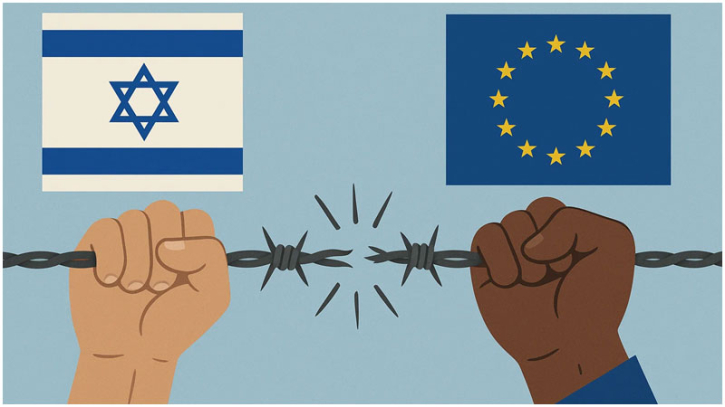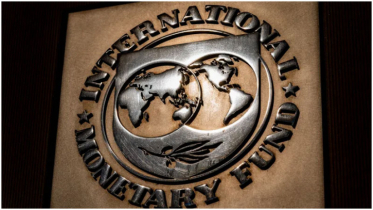Why the EU must address Israel's human rights record

The Gaza war entering its second year compels the European Union (EU) to face its contradictory relationship with Israel amid increasing evidence of human rights abuses. The question now is whether the EU can afford not to act.
Recent weeks have shown a notable shift. For the first time in decades, serious proposals are coming from within the EU to review, restrict, or even suspend key agreements with Israel, including the vital EU-Israel Association Agreement -- the cornerstone of their political and economic partnership since 2000.
Over 110 civil society organizations, including Human Rights Watch and Amnesty International, have called on the EU to suspend the agreement until Israel ceases actions that breach international humanitarian law, especially in Gaza and the occupied West Bank (Human Rights Watch, 2025).
EU members at a crossroads
So far, the European External Action Service (EEAS) has confirmed that Israel may be in breach of Article 2 of the Association Agreement, which obliges both parties to uphold human rights and democratic principles. In practical terms, that puts the entire agreement on the table for legal and political review (Politico EU, June 2025).
Countries such as Spain, Ireland, Belgium, and the Netherlands have provided the most vocal backing for action, openly questioning the morality and legality of continuing business as usual with Israel. Spain has gone as far as to request formal suspension procedures under the EU’s external trade policy mechanisms.
But the path to collective EU action remains difficult. Countries like Germany, Austria, Hungary, and the Czech Republic are firm in their support for Israel and have blocked stronger measures, including sanctions and an arms embargo. Progress has been hindered so far because EU foreign policy decisions require unanimity among member states.
However, the debate has undergone a fundamental shift. The idea that Israel can depend forever on unconditional European backing is weakening due to increasing civilian deaths, targeted attacks on hospitals and refugee camps, and continued settlement expansion considered illegal by international law.
EU-Israel bilateral ties
The EU is Israel’s largest trading partner, accounting for roughly one-third of Israel’s total trade. The EU-Israel Association Agreement gives Israel preferential access to the single market, covering goods, services, and research cooperation.
But Article 2 of that agreement is clear: “Relations between the Parties shall be based on respect for human rights and democratic principles.” If these are violated, the agreement provides a legal mechanism for suspension.
Since the conflict began in October 2023, over 55,637 Palestinians have died and 129,880 have been injured in Gaza. Three months after hostilities intensified on 18 March, more than 680,000 people have been displaced, with less than 18% of Gaza remaining outside Israeli-militarised zones or displacement areas.
Additionally, approximately 55,000 pregnant women in Gaza face increasing health risks, such as miscarriage, stillbirth, and undernourished newborns. (OCHA, June 2025).
EU on Human rights abuse in Gaza
The EU has criticised these actions in words but has yet to turn that criticism into actual policy. By failing to enforce its agreements, the Union risks rendering its human rights framework ineffective.
Critics say the EU’s inconsistent application of its foreign policy standards -- hard on Russia, soft on Israel -- undermines its credibility. The Union acted quickly to impose wide-ranging sanctions on Moscow over its invasion of Ukraine, citing breaches of international law and war crimes.
However, when similar claims are made against Israel, even basic measures like suspending arms exports or labelling settlement products encounter diplomatic delay. This selective outrage diminishes Europe’s global moral authority and encourages authoritarian actors elsewhere, who view the West’s human rights rhetoric as politically motivated rather than principled.
Without a coordinated EU response, civil society is stepping in to fill the gap. Over 100 NGOs, including prominent European humanitarian groups and Middle Eastern human rights organisations, have issued joint appeals calling for accountability. Consumer advocates are also becoming more active.
A recent YouGov survey indicates that more than 65% of EU citizens support halting trade with Israel if human rights violations are confirmed. This grassroots activism bears a resemblance to the anti-apartheid campaigns of the 1980s. Similarly, governments might eventually be compelled to respond, driven not by top-down directives but by bottom-up pressure.
What's next for the EU?
The EU cannot delay action indefinitely. It should also impose an arms embargo until independent investigations confirm compliance with international humanitarian law. Trade with Israeli settlements should be limited, in line with the 2019 Court of Justice of the EU ruling on product origin labelling.
Additionally, establishing a permanent EU fact-finding body for Gaza and the West Bank can promote transparent reporting and accountability. All humanitarian aid to Gaza must be allowed without restrictions, and attacks on civilian infrastructure should be thoroughly investigated.
For too long, the EU has claimed to uphold international law and human rights but has overlooked abuses by its partners. The ongoing Gaza conflict is the clearest test yet of whether the EU will consistently apply its standards. While the moral and legal responsibilities are obvious, political commitment remains divided. History shows, however, that change in Europe often begins with pressure from the margins -- citizens, courts, and civil society urging institutions to honour their commitments. If Europe truly values peace, justice, and the rule of law, it must stop looking the other way.
.png)




